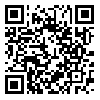دوره 11، شماره 5 - ( 6-1399 )
جلد 11 شماره 5 صفحات 714-701 |
برگشت به فهرست نسخه ها
Download citation:
BibTeX | RIS | EndNote | Medlars | ProCite | Reference Manager | RefWorks
Send citation to:



BibTeX | RIS | EndNote | Medlars | ProCite | Reference Manager | RefWorks
Send citation to:
Khodakarami Z, Firoozabadi M. Psychological, Neurophysiological, and Mental Factors Associated With Gamma-Enhancing Neurofeedback Success. BCN 2020; 11 (5) :701-714
URL: http://bcn.iums.ac.ir/article-1-1511-fa.html
URL: http://bcn.iums.ac.ir/article-1-1511-fa.html
Psychological, Neurophysiological, and Mental Factors Associated With Gamma-Enhancing Neurofeedback Success. مجله علوم اعصاب پایه و بالینی. 1399; 11 (5) :701-714
چکیده:
Introduction: Regarding the neurofeedback training process, previous studies indicate that 10%-50% of subjects cannot gain control over their brain activity even after repeated training sessions. This study is conducted to overcome this problem by investigating inter-individual differences in neurofeedback learning to propose some predictors for the trainability of subjects.
Methods: Eight healthy female students took part in 8 (electroencephalography) EEG neurofeedback training sessions for enhancing EEG gamma power at the Oz channel. We studied participants’ preexisting fluid intelligence and EEG frequency sub-bands’ power during 2-min eyes-closed rest and a cognitive task as psychological and neurophysiological factors, concerning neurofeedback learning performance. We also assessed the self-reports of participants about mental strategies used by them during neurofeedback to identify the most effective successful strategies.
Results: The results revealed that a significant percentage of individuals (25% in this study) cannot learn how to control their brain gamma activity using neurofeedback. Our findings suggest that fluid intelligence, gamma power during a cognitive task, and alpha power at rest can predict gamma-enhancing neurofeedback performance of individuals. Based on our study, neurofeedback learning is a form of implicit learning. We also found that learning without a user’s mental efforts to find out successful mental strategies, in other words, unconscious learning, lead to more success in gamma-enhancing neurofeedback.
Conclusion: Our results may improve gamma neurofeedback efficacy for further clinical usage and studies by giving insight about both non-trainable individuals and effective mental strategies.
Methods: Eight healthy female students took part in 8 (electroencephalography) EEG neurofeedback training sessions for enhancing EEG gamma power at the Oz channel. We studied participants’ preexisting fluid intelligence and EEG frequency sub-bands’ power during 2-min eyes-closed rest and a cognitive task as psychological and neurophysiological factors, concerning neurofeedback learning performance. We also assessed the self-reports of participants about mental strategies used by them during neurofeedback to identify the most effective successful strategies.
Results: The results revealed that a significant percentage of individuals (25% in this study) cannot learn how to control their brain gamma activity using neurofeedback. Our findings suggest that fluid intelligence, gamma power during a cognitive task, and alpha power at rest can predict gamma-enhancing neurofeedback performance of individuals. Based on our study, neurofeedback learning is a form of implicit learning. We also found that learning without a user’s mental efforts to find out successful mental strategies, in other words, unconscious learning, lead to more success in gamma-enhancing neurofeedback.
Conclusion: Our results may improve gamma neurofeedback efficacy for further clinical usage and studies by giving insight about both non-trainable individuals and effective mental strategies.
نوع مطالعه: Original |
موضوع مقاله:
Clinical Neuroscience
دریافت: 1398/3/6 | پذیرش: 1399/7/11 | انتشار: 1399/6/11
دریافت: 1398/3/6 | پذیرش: 1399/7/11 | انتشار: 1399/6/11
| بازنشر اطلاعات | |
 |
این مقاله تحت شرایط Creative Commons Attribution-NonCommercial 4.0 International License قابل بازنشر است. |





